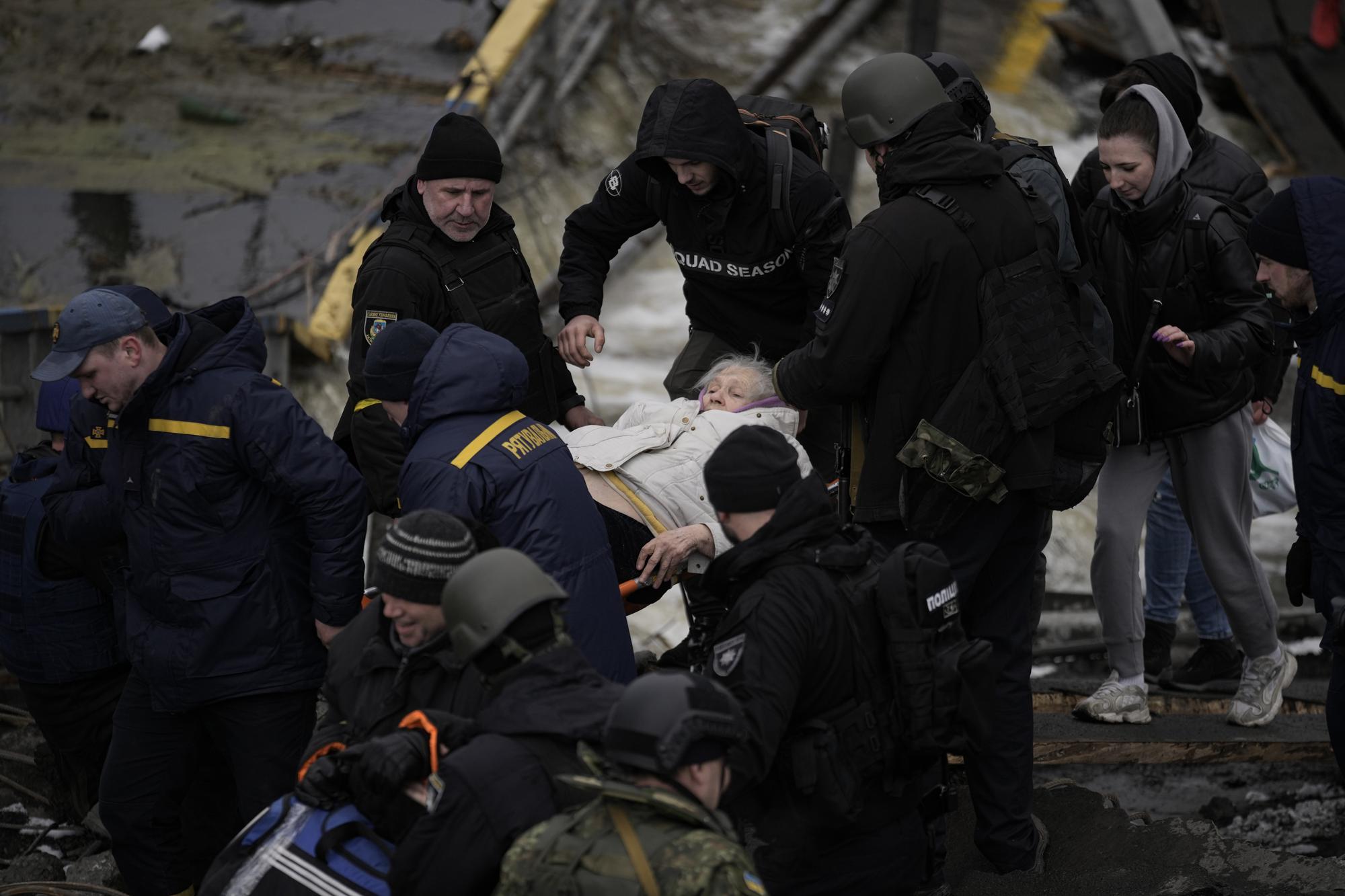The Ukraine crisis has consumed us in a sudden and overwhelming information overload. After weeks of warnings about a potential war in Ukraine preceded by years of increasing antagonism, the Russian military marched into the country and swiftly altered geopolitics for decades to come. Within minutes of the invasion, the global news cycle kicked into high-octane war coverage and it hasn’t stopped since. While it is vital that the war and suffering of the Ukrainian people is reported as transparently as possible, the flood of information through our phone screens carries its own kind of harm. The Ukraine crisis is adding another layer to our crisis of information overload, and it’s damaging collective mental health in myriad ways.
Let’s start with the immediate factors concerning the Ukraine war. Given the nature of social media platforms like Twitter and Facebook, the conflict has taken on a personal dimension for many around the world. Even if you have no connection to Ukraine or Russia, the war has felt intimate and overwhelming. Is the next world war on the horizon? Is the global economy about to enter a prolonged recession? Someone could be sitting at home in Jakarta or Buenos Aries, doom-scrolling through Twitter and feel as though the events in Ukraine are taking place outside their door. This situation is compounded by the fact that social media companies have a vested interest in keeping users engaged on their platforms. That’s how they generate revenue, after all.Â
The writer James Greig astutely notes that it’s reasonable “to be anxious about what might happen next, but we should bear in mind that, as of now, this is first and foremost something which is happening to people in Ukraine. We are not being bombed or driven out of our homes.” Greig goes on to bemoan the glib reaction to the conflict by many on social media. Many have made the war about themselves because of the tendency to place oneself at the center of this historic episode.Â
To understand how we arrived at this moment, we need to consider how the internet is changing our relationship to information. The incredible amount of time we spend glued to our smartphones is changing how we experience and integrate information. We read differently than we did just decades ago. Our attention spans have shortened. Our sleep has become worse thanks to the constant blue light of our screens. The Ukraine war is the latest and most extreme example of the shift in how we deal with information. Perhaps surprisingly, this change is deeply affecting our mental health and can be clearly seen in how the midlife crisis is changing. Â
While it might seem like a jump on the surface, the midlife crisis in the internet age is a key dynamic in mental health trends. Made popular by the Swiss psychologist Carl Jung, the midlife crisis is a period of great transformation that we all experience around the midpoint in our lives regardless of wealth, social situation, and upbringing. In popular culture, a midlife crisis is articulated with people chasing fancy sports cars to reclaim some form of lost youth and vitality. However, the transformative period is more about one’s relationship with self than material goods.Â
For Jung, a person is called upon in the middle part of their life “to achieve an authentic and balanced self that acknowledges every aspect of his or her character.” When Jung was working in the early 20th century, this crisis generally came about between the ages of 40 to 50. At that stage, many have established a career and started a family. Suppressed emotional trauma comes to the surface at this stage as we begin to grapple with the proximity of death. The challenge, for Jung, is to psychologically harmonize with all aspects of the self, a process he called individuation. Jung famously said that “midlife is the time to let go of an over dominant ego and to contemplate the deeper significance of human existence.”
How can we contemplate the deeper significance of human existence if we are glued to our Instagram and Twitter feeds engaged in endless commentary about far-off conflicts that don’t bear directly on our lived experience? The Ukraine crisis is not the reason for our mental crisis but an example of how we are losing ourselves in the constant stream of information we encounter on a daily basis. It’s fine to be concerned about the fate of Ukraine and how geopolitics will change but when we are consumed by it all day, we lose sight of the deeper significance of human existence. The difficult process of individuation is rendered nearly impossible if one is constantly checking a smartphone.
Popular culture has made the midlife crisis into a bit of a joke but the process is an important and potentially positive one. If we take the opportunity seriously, it is a rare chance to become our true selves. Given the financial interests of powerful technology companies to keep us online, we are facing unprecedented challenges in navigating our midlife crises. It’s time to rebrand the midlife crisis and see it as a vital portal to better mental health.
By Joseph Dana is the senior editor of Exponential View, a weekly newsletter about technology and its impact on society. He was formerly the editor-in-chief of emerge85, a lab exploring change in emerging markets and its global impact.
________
Syndication Bureau






